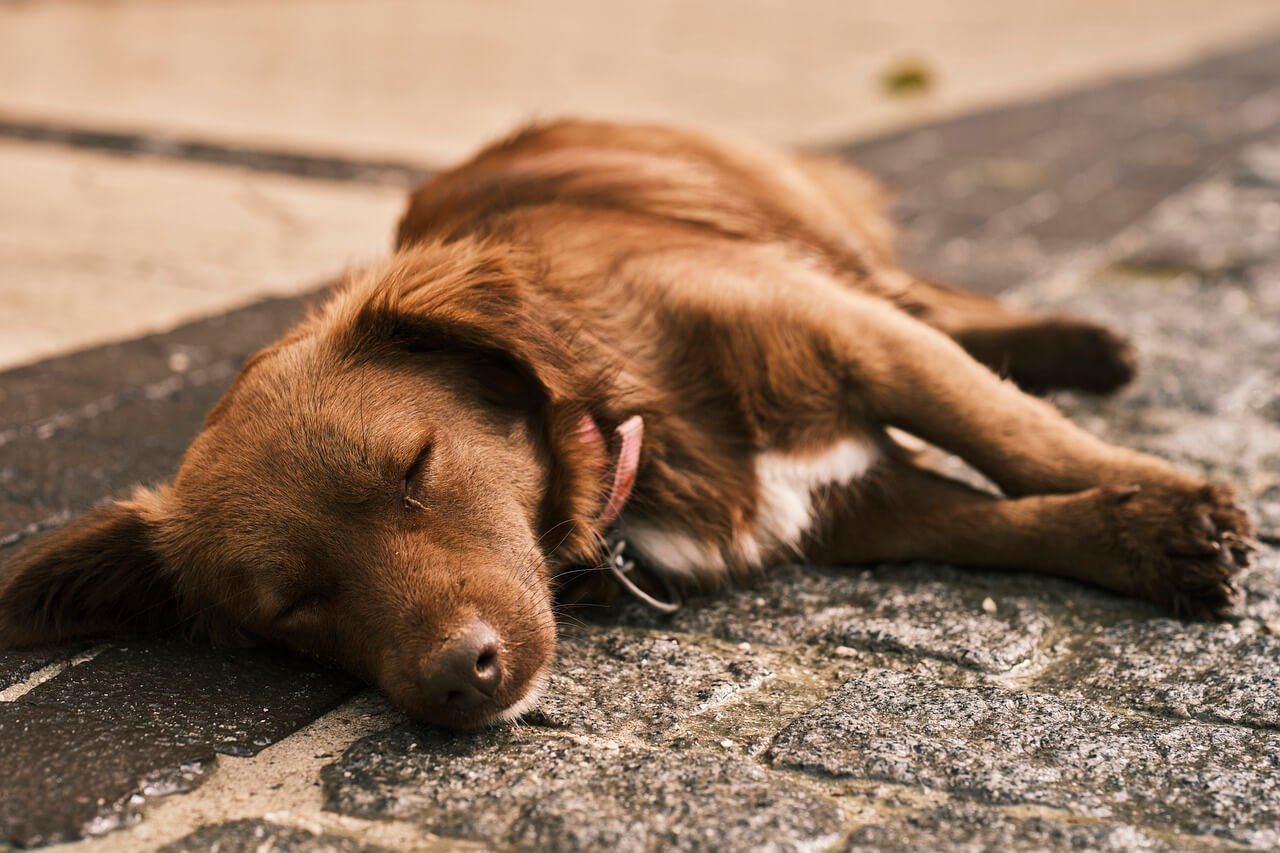Dog Poop Starts Solid Then Soft: What It Means for Your Furry Friend
As a dog owner, you’re likely familiar with the joys of caring for your four-legged companion—and occasionally, the less glamorous aspects, like monitoring their poop. While it may not be the most exciting topic, your dog’s stool can provide valuable insights into their health. If you notice that your dog’s poop starts solid but becomes soft later, it could be a sign of something worth investigating. In this guide, we’ll explore what this pattern might mean, potential causes, and how to address it. By understanding these signs, you can ensure your pup stays happy, healthy, and thriving.
What Does It Mean When Dog Poop Starts Solid Then Soft?
When your dog’s poop transitions from solid at the beginning to soft toward the end, it’s often a sign that something in their digestive system isn’t quite right. This pattern can indicate issues ranging from dietary changes to more serious health concerns. Here are some key points to consider:
The transition from solid to soft may reflect incomplete digestion.
It could signal an imbalance in gut bacteria or microbiome disruption.
Changes in diet or sudden introduction of new foods may be to blame.
Stress or anxiety can also impact your dog’s digestive health.
Underlying medical conditions, such as pancreatitis or inflammatory bowel disease, might be involved.
While occasional soft stools aren’t always a cause for concern, persistent patterns should be evaluated by a veterinarian to rule out serious issues.
Common Causes of Dog Poop Starting Solid Then Soft
Understanding the potential causes of this stool pattern is essential for addressing the issue effectively. Here are some common reasons why your dog’s poop might start solid and then become soft:
Sudden dietary changes without proper transition periods.
Food allergies or intolerances to certain ingredients.
Parasitic infections, such as worms or giardia.
Bacterial or viral infections affecting the gastrointestinal tract.
Lack of fiber or an imbalanced diet lacking essential nutrients.
Identifying the root cause is crucial for resolving the issue. If you’re unsure, consult your veterinarian for guidance and diagnostic testing.
Check this guide 👉Can Dog Poop Be Used as Fertilizer? Best 7 Expert Tips!
Check this guide 👉Dog Poop Encased in Membrane: Best 7 Expert Tips!
Check this guide 👉Yellow Mucus in Dog Poop: Best 7 Expert Tips!

Signs to Watch For | Possible Causes |
|---|---|
Stool starts solid, ends soft | Dietary changes or food intolerance |
Frequent loose stools | Parasites or bacterial infections |
Blood or mucus in stool | Inflammatory bowel disease |
Increased gas or bloating | Poor digestion or gut imbalance |
Weight loss or lethargy | Pancreatitis or other systemic issues |
How to Address Dog Poop That Starts Solid Then Soft
If your dog’s stool exhibits this pattern, there are several steps you can take to address the issue. Early intervention can prevent complications and improve your dog’s overall well-being. Here’s what you can do:
Gradually transition to new foods over 7–10 days to avoid digestive upset.
Provide a balanced diet rich in high-quality proteins and fibers.
Add probiotics to support gut health and restore beneficial bacteria.
Monitor your dog’s hydration levels to prevent dehydration from soft stools.
Avoid giving your dog table scraps or foods that are toxic to them.
By taking these steps, you can help stabilize your dog’s digestion and reduce the likelihood of recurring issues.
When to See a Veterinarian
While occasional soft stools aren’t always alarming, certain signs warrant immediate veterinary attention. Recognizing these red flags can help you act quickly and protect your dog’s health. Here’s what to look for:
Persistent soft or watery stools lasting more than 48 hours.
Blood or mucus present in the stool.
Signs of pain, such as whining or reluctance to move.
Vomiting alongside soft stools or diarrhea.
Lethargy, loss of appetite, or significant weight loss.
If you notice any of these symptoms, schedule a vet visit promptly. Early diagnosis and treatment can make all the difference in your dog’s recovery.
Preventive Measures to Maintain Healthy Dog Poop
Preventing digestive issues in dogs starts with proactive care and attention to their diet and lifestyle. By taking steps to maintain your dog’s gut health, you can reduce the likelihood of irregular stool patterns like poop that starts solid then soft. Here are some preventive measures to consider:
Feed your dog high-quality, easily digestible food formulated for their age and size.
Avoid sudden changes in diet; always transition gradually over 7–10 days.
Provide plenty of fresh water to keep your dog hydrated and support digestion.
Incorporate fiber-rich foods, such as pumpkin or sweet potato, to promote regularity.
Schedule regular vet check-ups to monitor your dog’s overall health.
By implementing these practices, you can help ensure your dog’s digestive system stays strong and healthy, reducing the risk of stool inconsistencies.
Signs Your Dog’s Stool Indicates a Serious Issue
While occasional soft stools aren’t always a cause for concern, certain signs in your dog’s poop may indicate a more serious underlying problem. Recognizing these red flags early can help you address potential health issues before they worsen. Here’s what to look for:
Black or tarry stools, which may indicate internal bleeding.
Bright red blood in the stool, signaling irritation or injury in the lower digestive tract.
Greasy or oily stools, often linked to poor fat absorption.
Excessive mucus coating the stool, suggesting inflammation or infection.
Foul-smelling stools that differ significantly from normal.
If you notice any of these symptoms, consult your veterinarian promptly. Early intervention is key to preventing complications and ensuring your dog’s well-being.
Ways to Support Your Dog’s Digestive Health at Home
Supporting your dog’s digestive health doesn’t have to be complicated. There are many simple yet effective ways to promote a healthy gut and improve stool consistency. Consider these practical tips:
Add plain, unsweetened yogurt to your dog’s meals as a natural probiotic source.
Offer small amounts of cooked vegetables like carrots or green beans for added fiber.
Avoid overfeeding, as excess food can overwhelm your dog’s digestive system.
Keep your dog active with regular exercise to stimulate digestion.
Minimize stress by creating a calm and predictable environment for your pet.
By incorporating these strategies into your dog’s routine, you can support their digestive health and reduce the likelihood of irregular stool patterns. Always consult your vet before making significant changes to your dog’s diet or care plan.
Frequently Asked Questions About Dog Poop
Is it normal for my dog’s poop to vary in consistency?
Some variation is normal, but consistent changes may indicate an underlying issue.
Can stress affect my dog’s stool consistency?
Yes, stress or anxiety can disrupt your dog’s digestive system.
How long should I wait before seeing a vet for soft stools?
If the issue persists for more than 48 hours or worsens, consult your vet.
Are probiotics safe for dogs?
Yes, probiotics can support gut health, but consult your vet for recommendations.
What foods should I avoid feeding my dog?
Avoid toxic foods like chocolate, onions, garlic, grapes, and fatty table scraps.
Final Thoughts: Keeping Your Dog’s Digestive Health in Check
Monitoring your dog’s poop may not be the most glamorous part of pet ownership, but it’s one of the most important ways to ensure their overall health. When your dog’s poop starts solid then soft, it’s a signal to pay closer attention to their diet, habits, and well-being. By staying proactive and addressing issues early, you can prevent minor problems from becoming major concerns. Remember, your veterinarian is your best ally in maintaining your dog’s health, so don’t hesitate to reach out if you have questions or concerns. With love, care, and attention, your furry friend will continue to thrive for years to come.
Do Cats Have Taste Buds? Best 7 Expert Tips! – Discover how cats experience flavors and why their taste is so unique.
Do Dogs Have Taste Buds? Best 7 Expert Tips! – Discover how dogs experience taste, their preferences, and what it means for their diet and health.
Can Cats Taste Sweet? Best 7 Expert Tips! – Discover why cats can’t taste sweetness, how it affects their diet, and tips to keep them healthy and happy.
Can Dogs Taste Sweet? Best 7 Expert Tips! – Discover how dogs perceive sweetness, which foods are safe, and tips to manage their sweet cravings responsibly.





